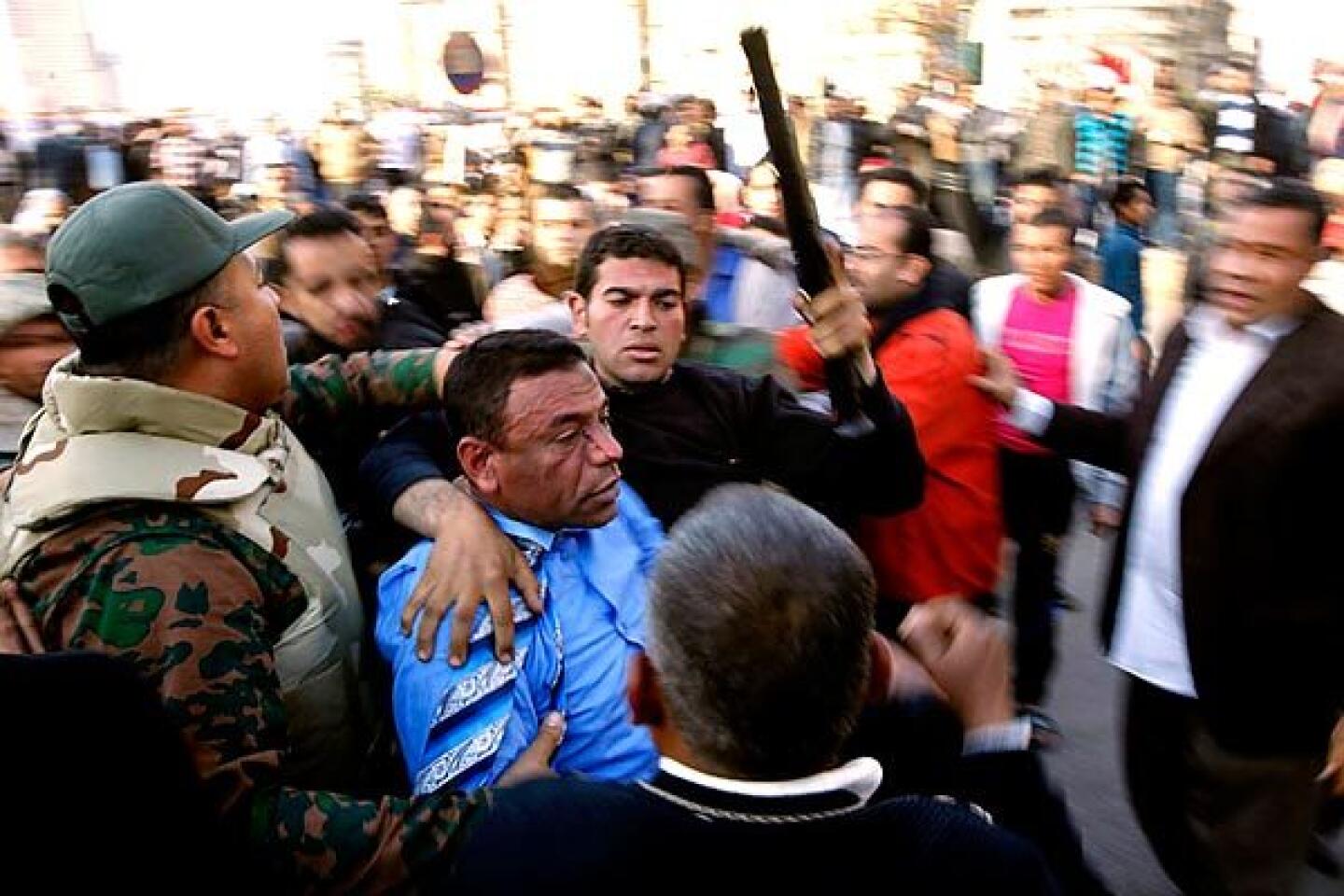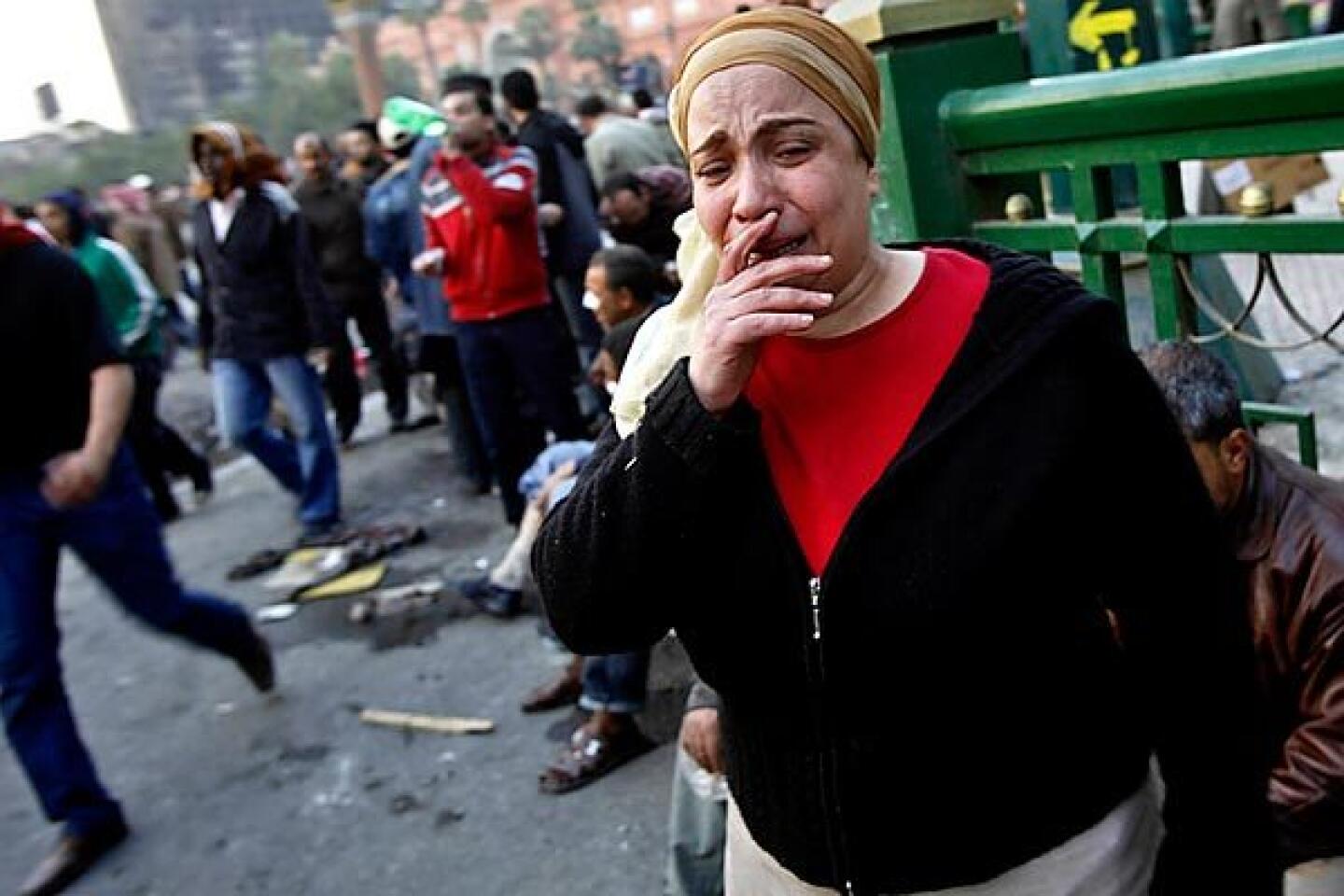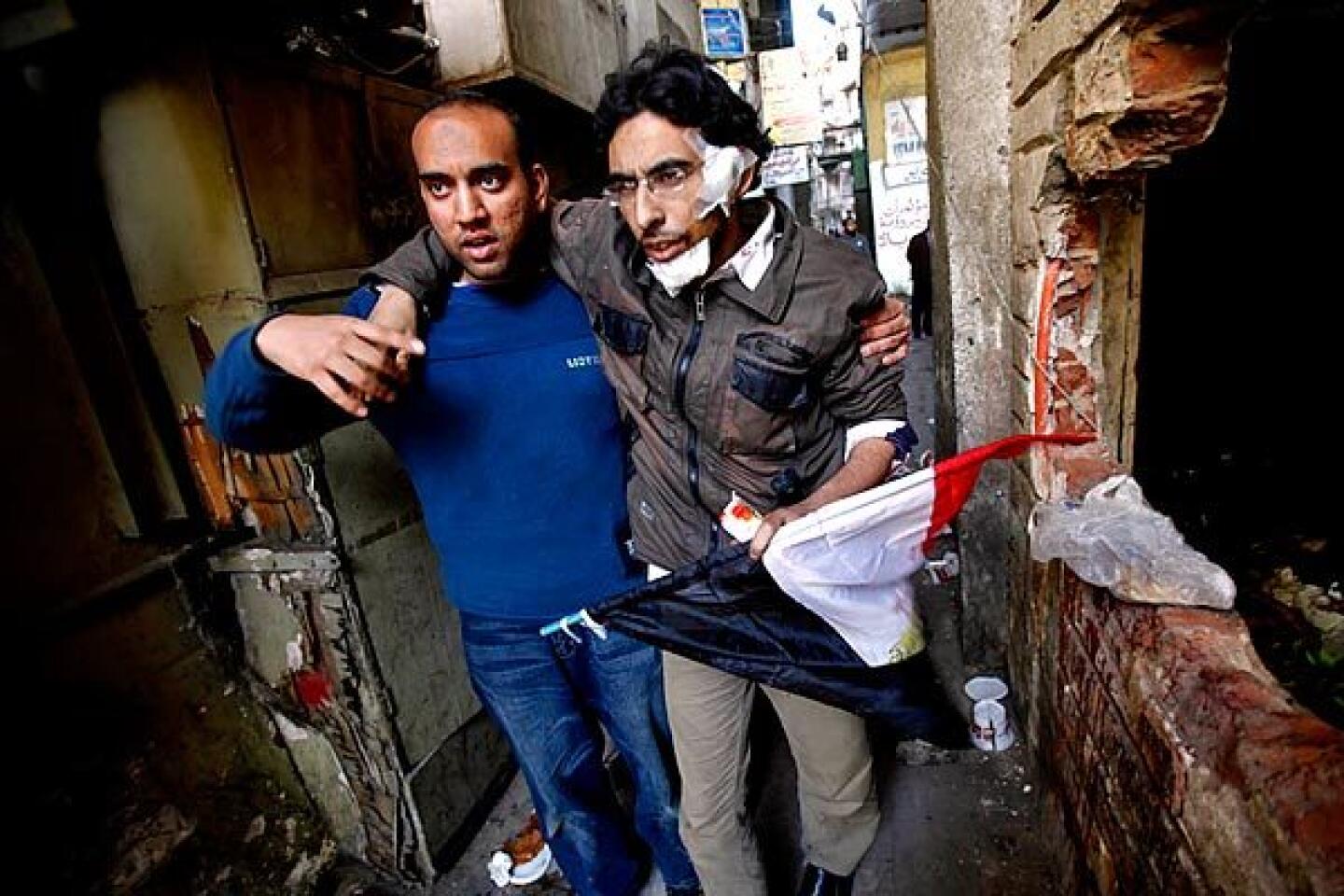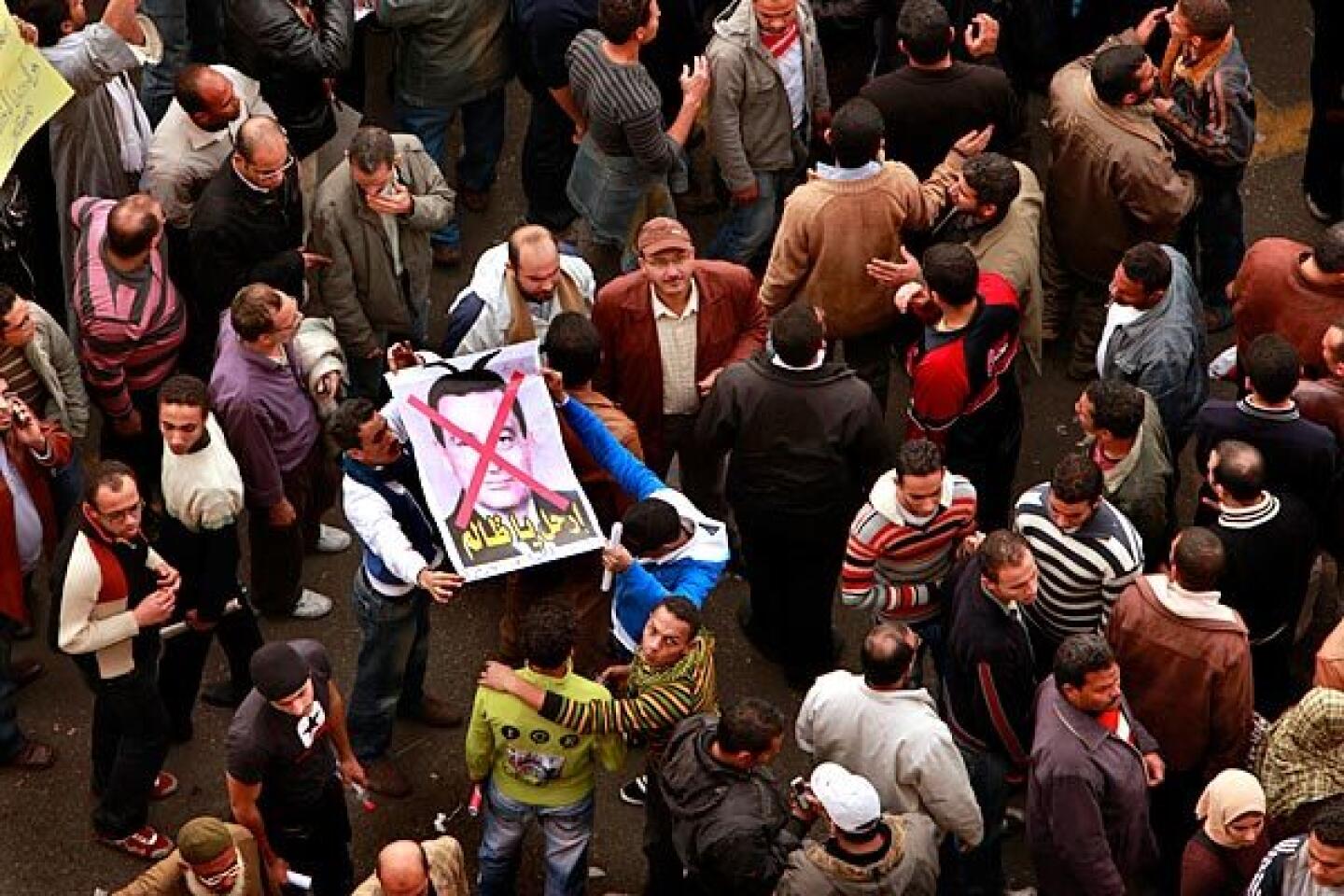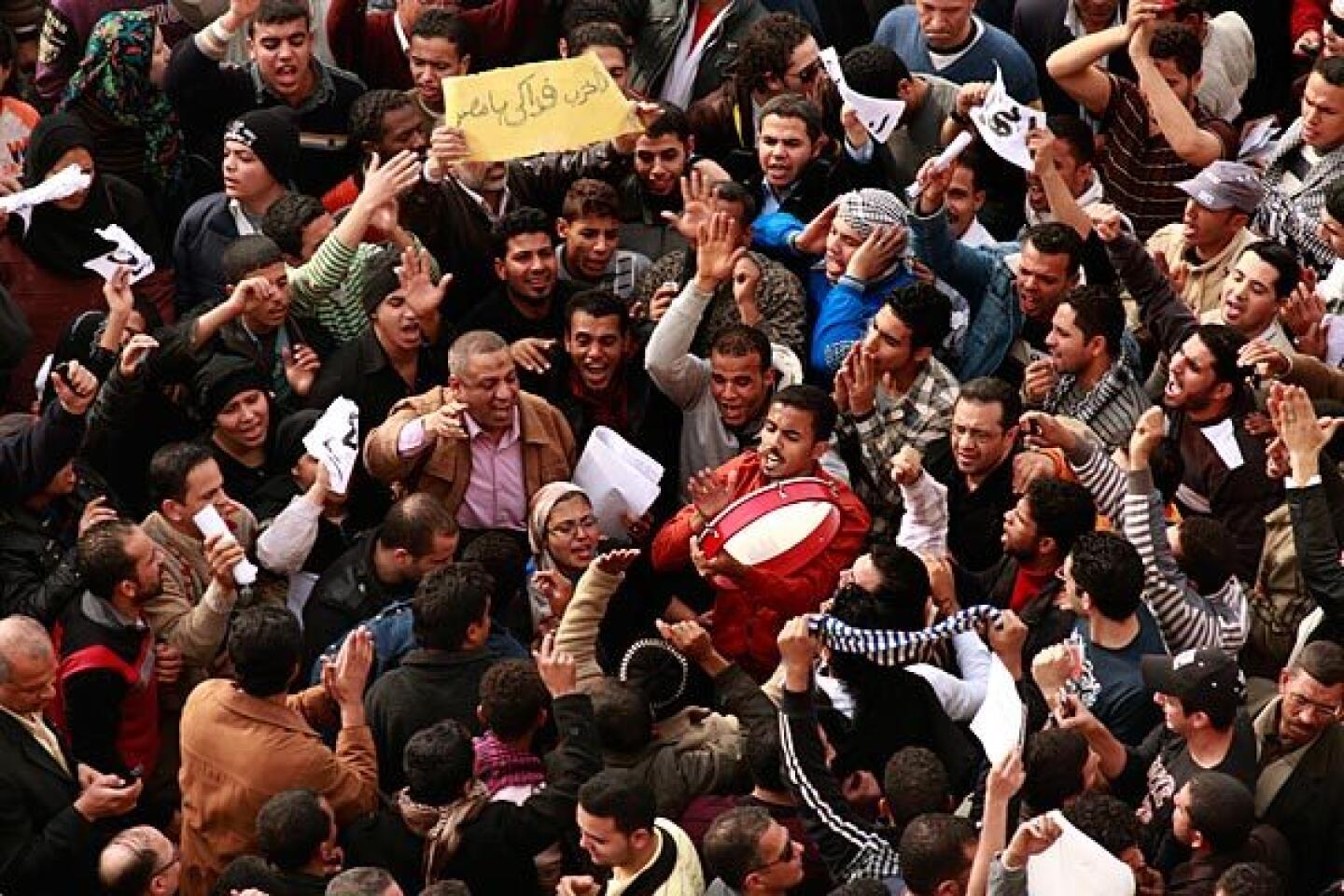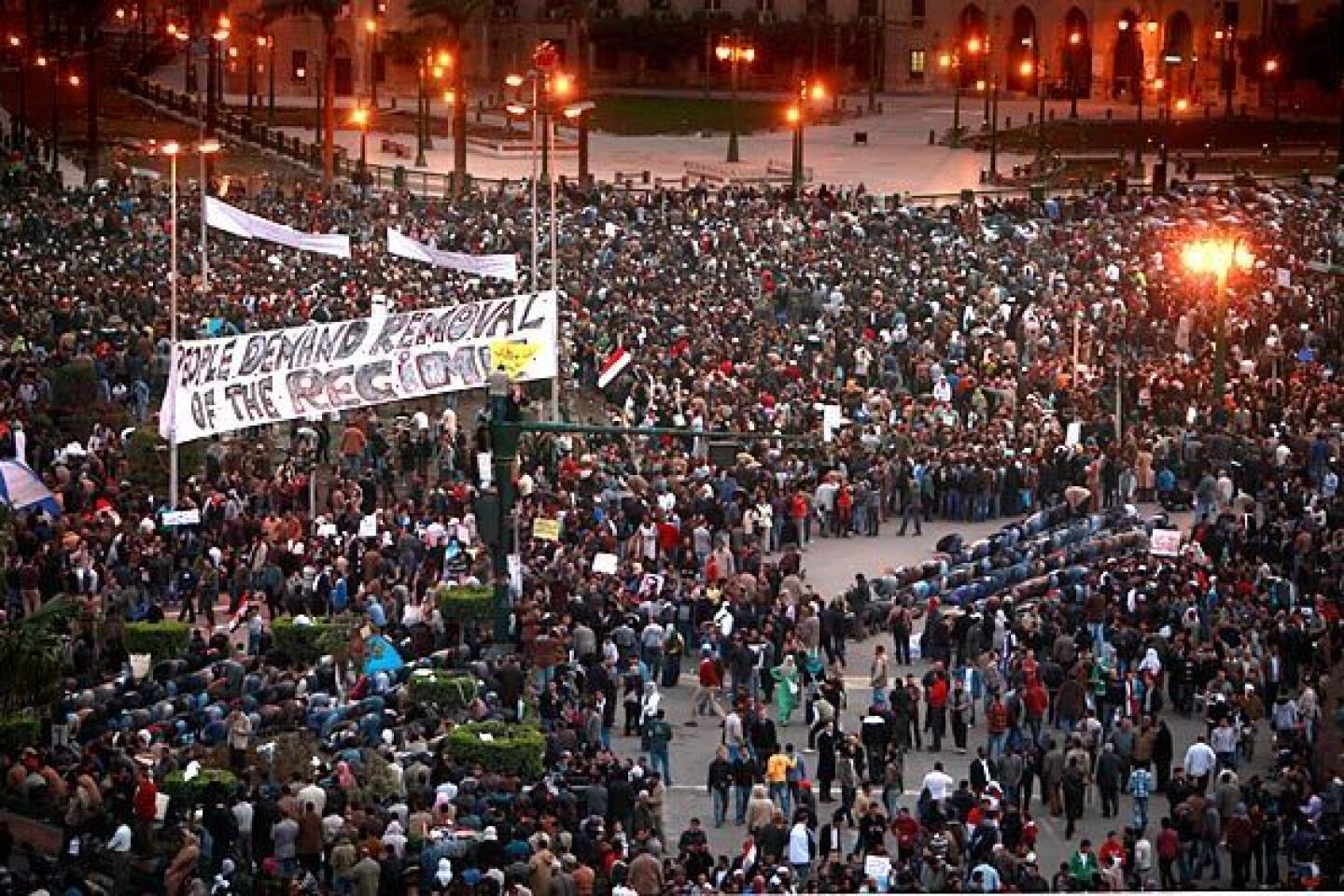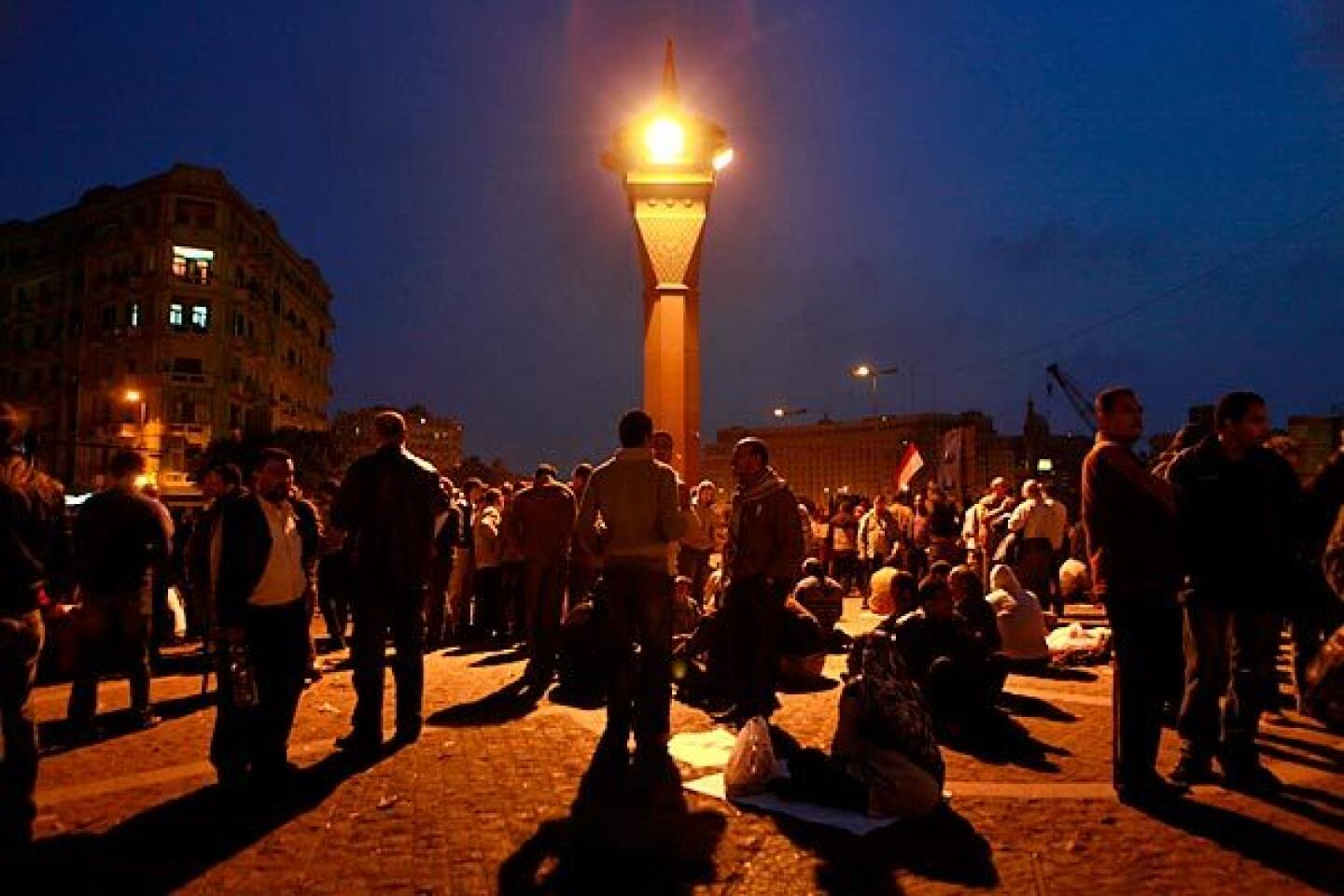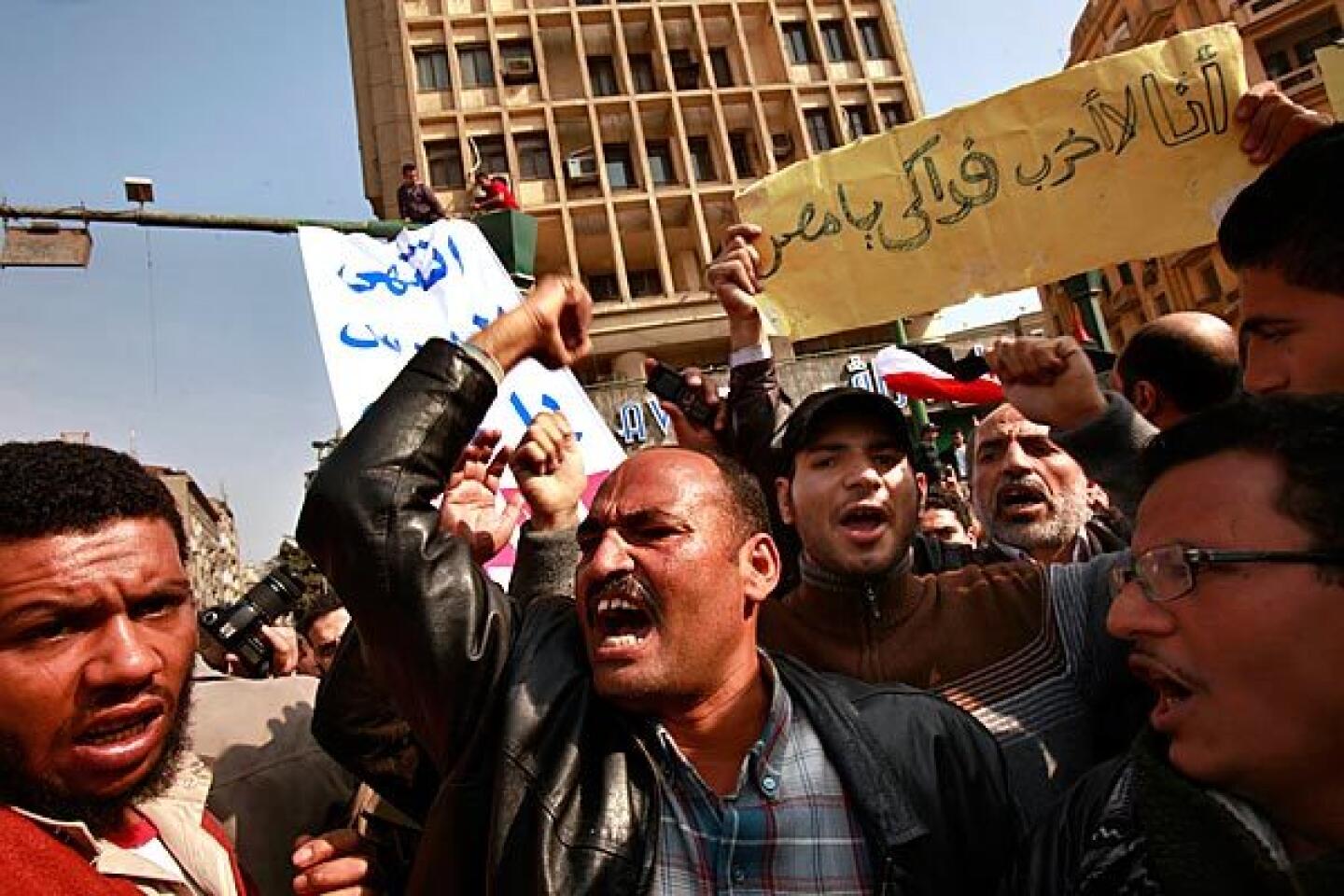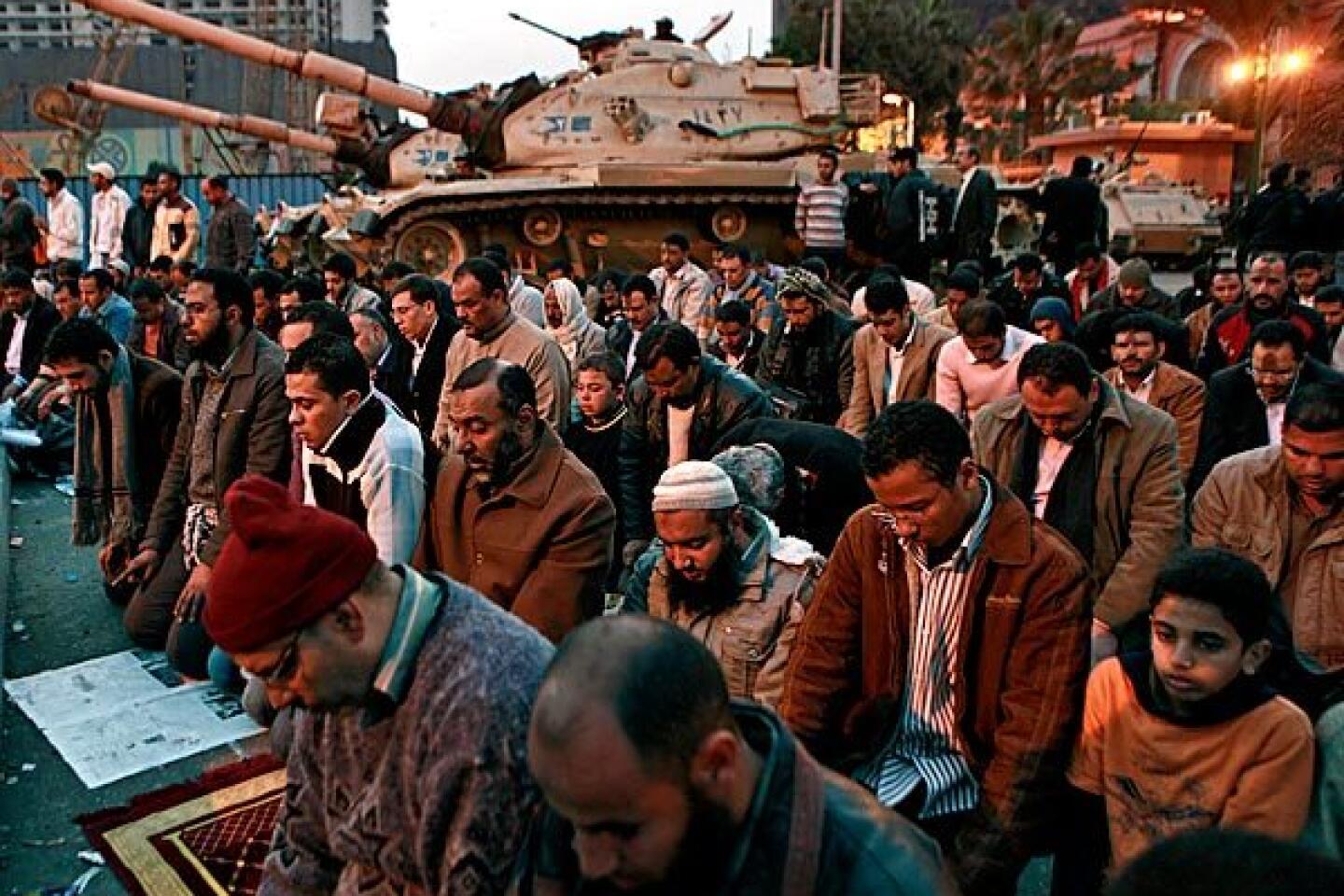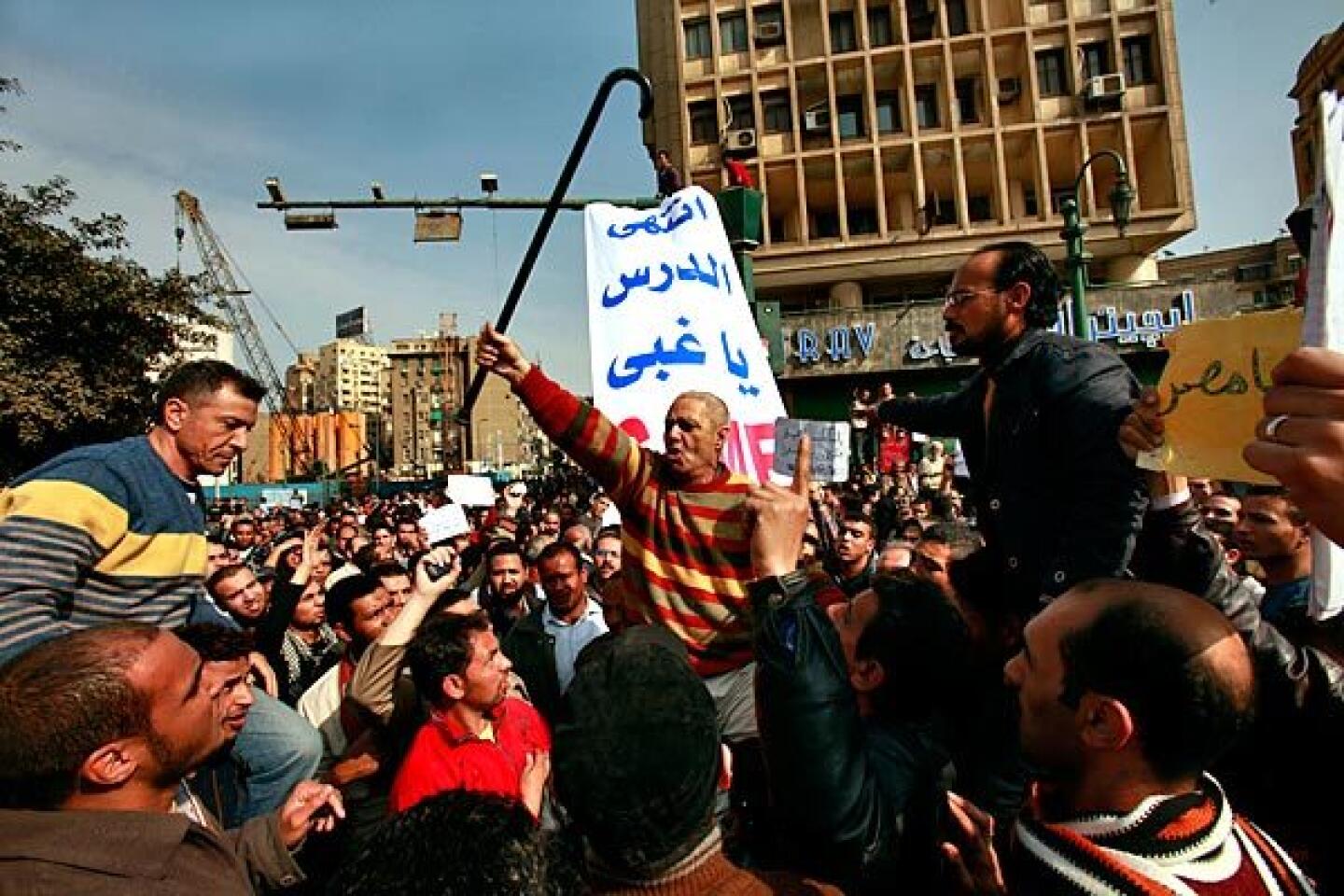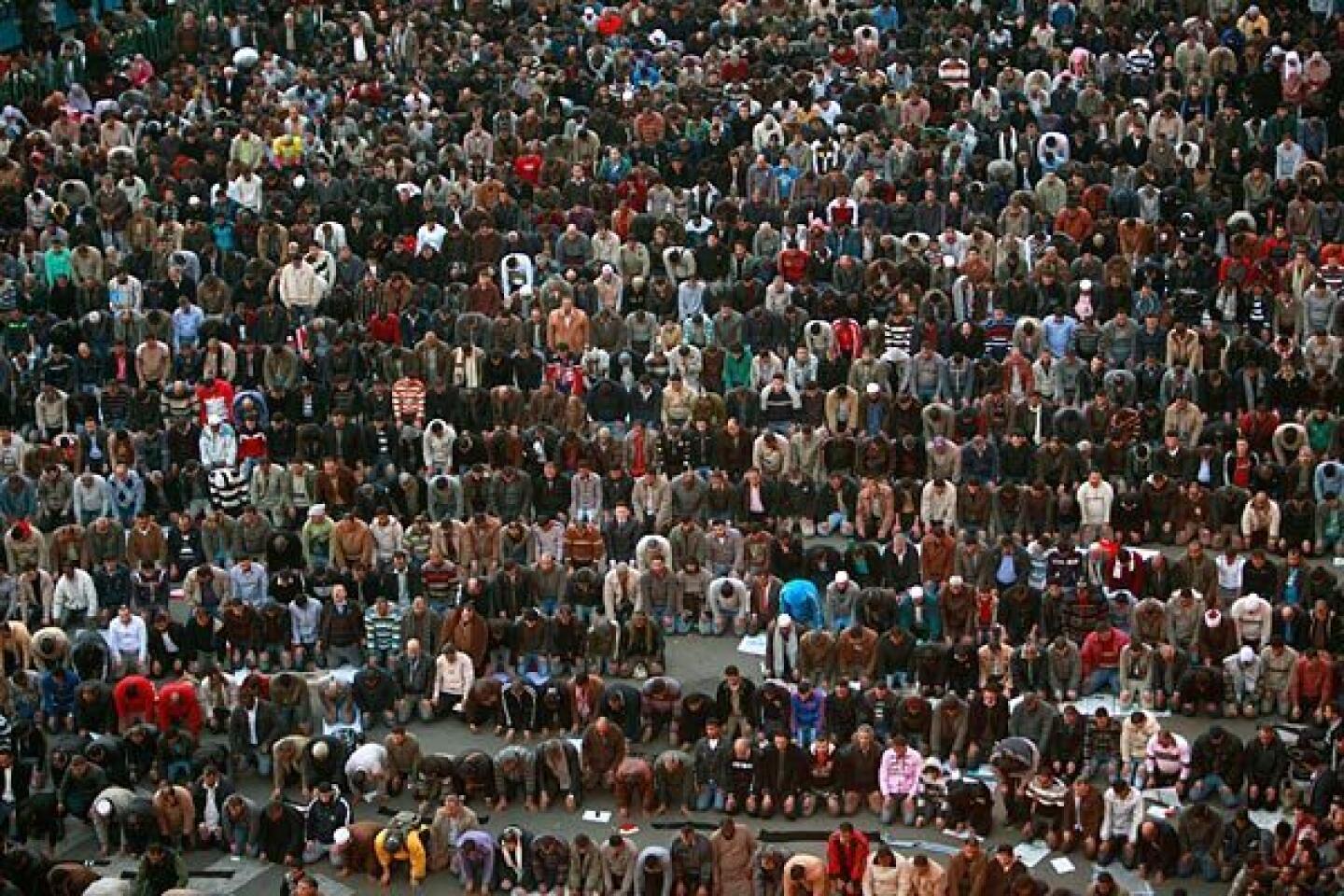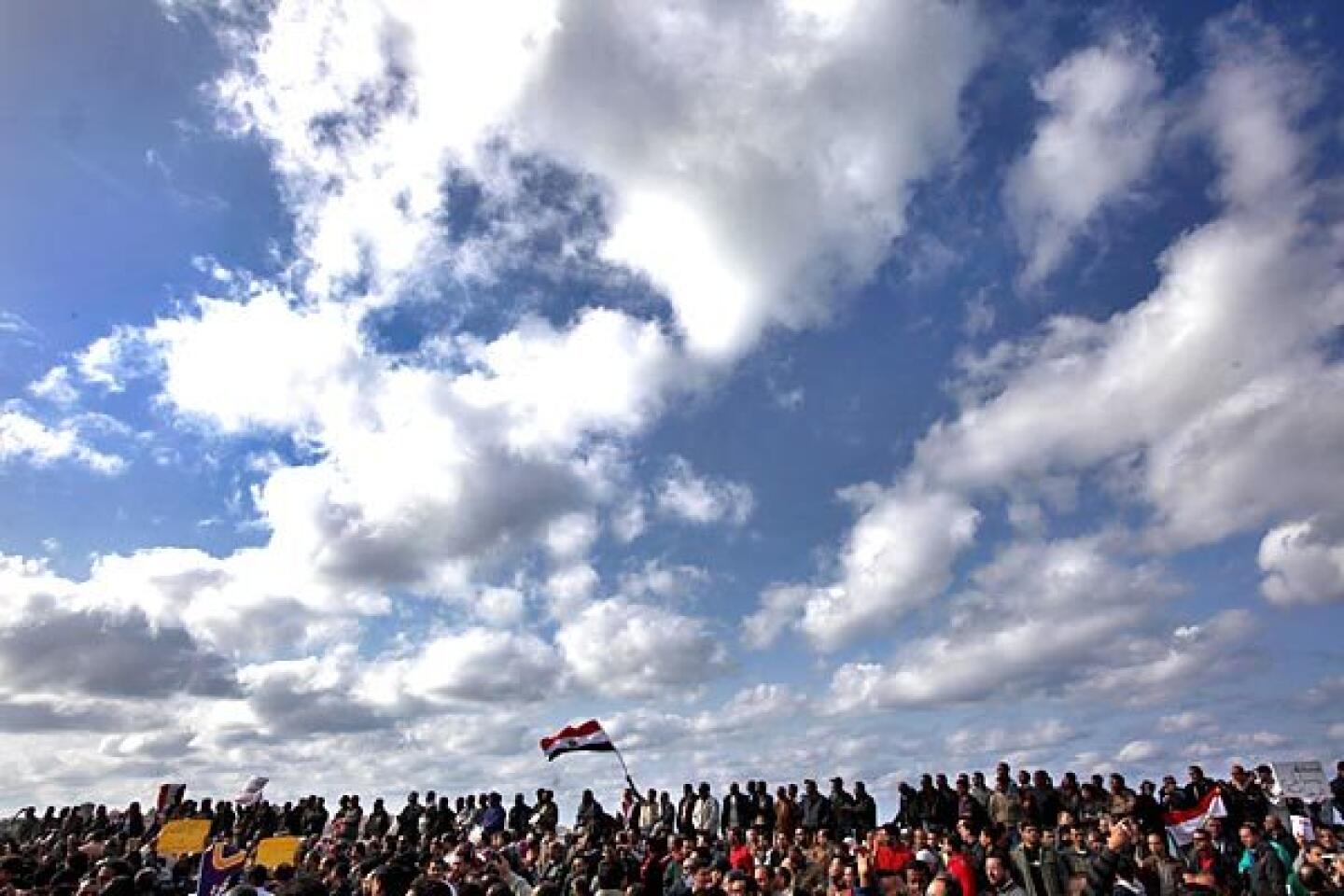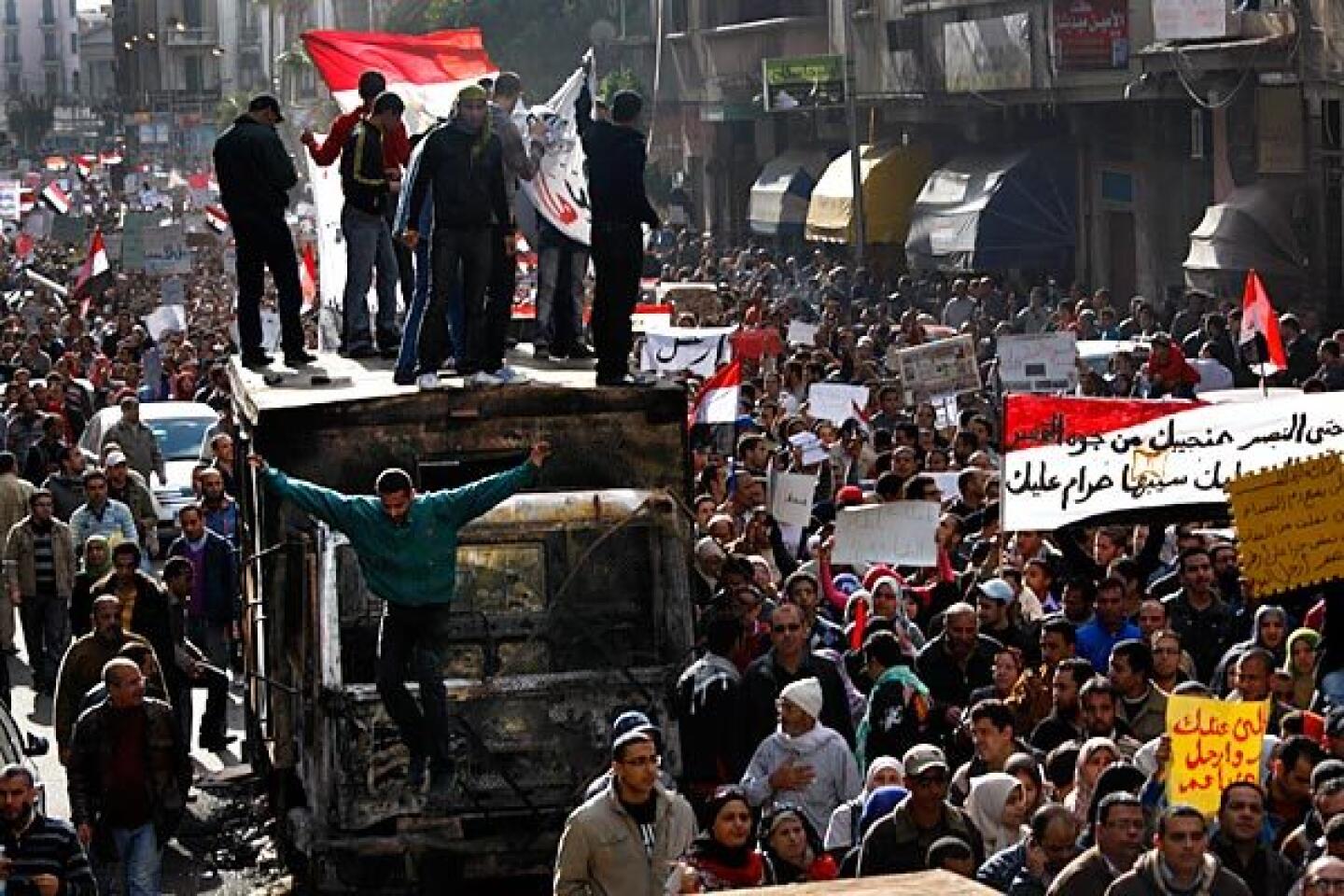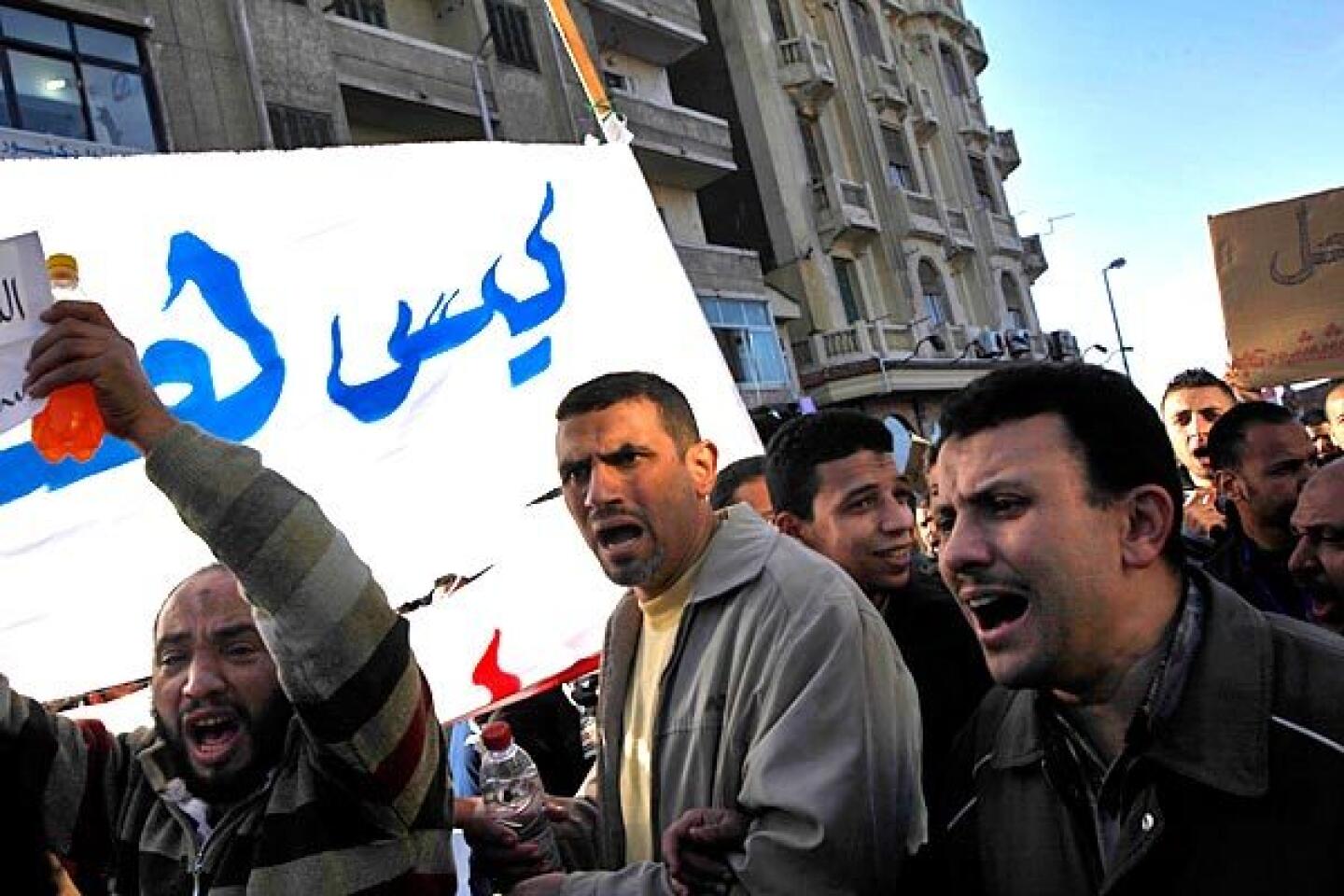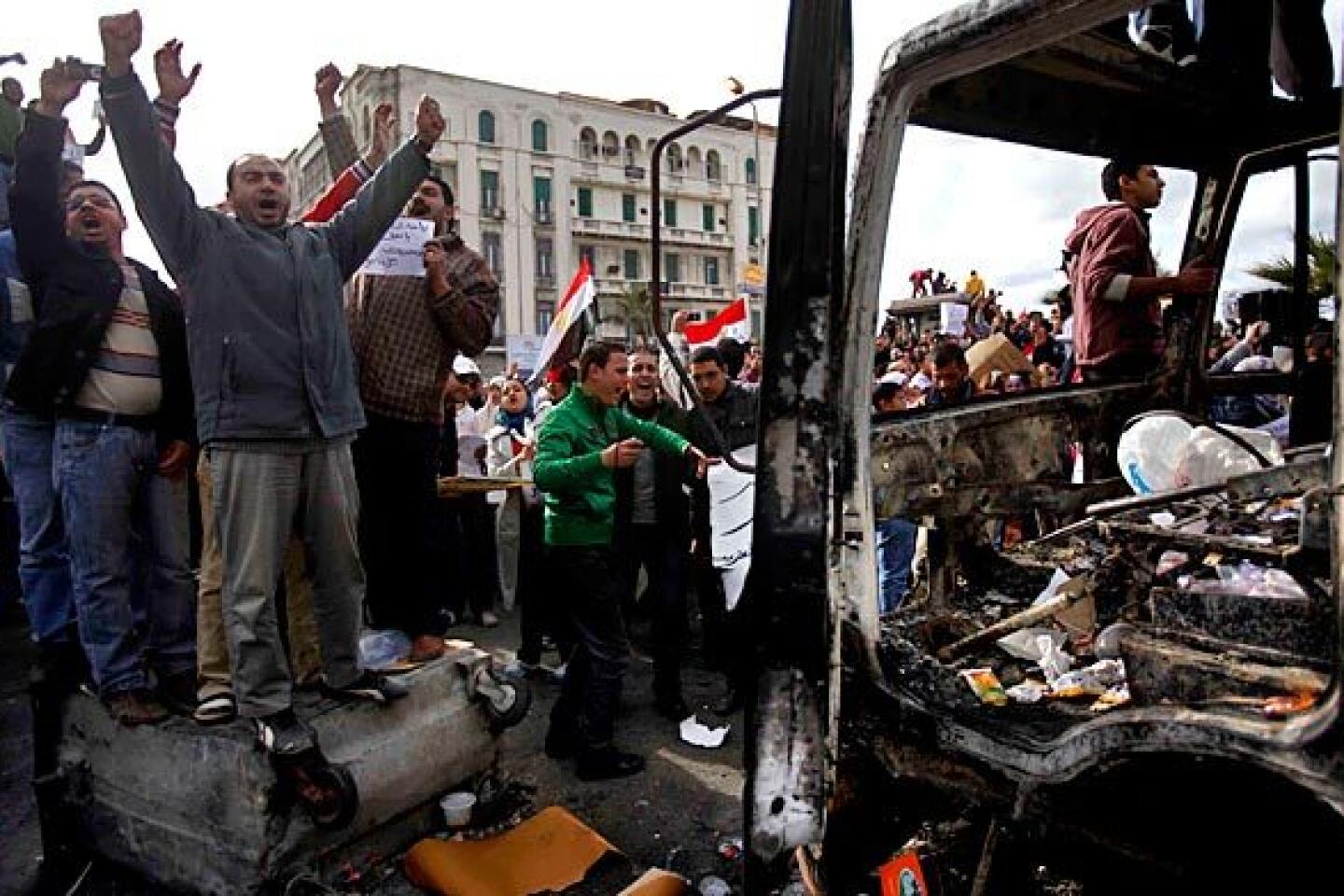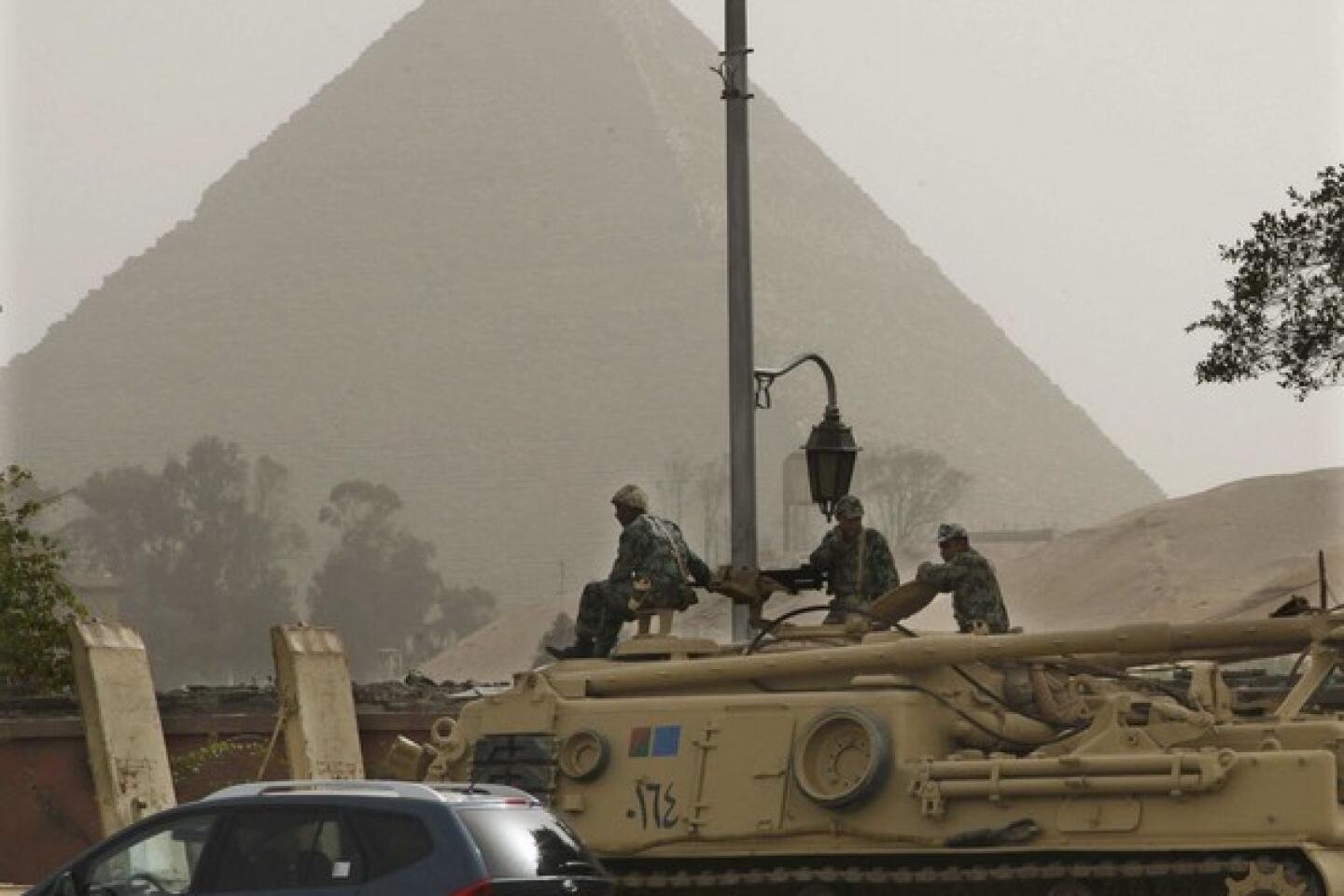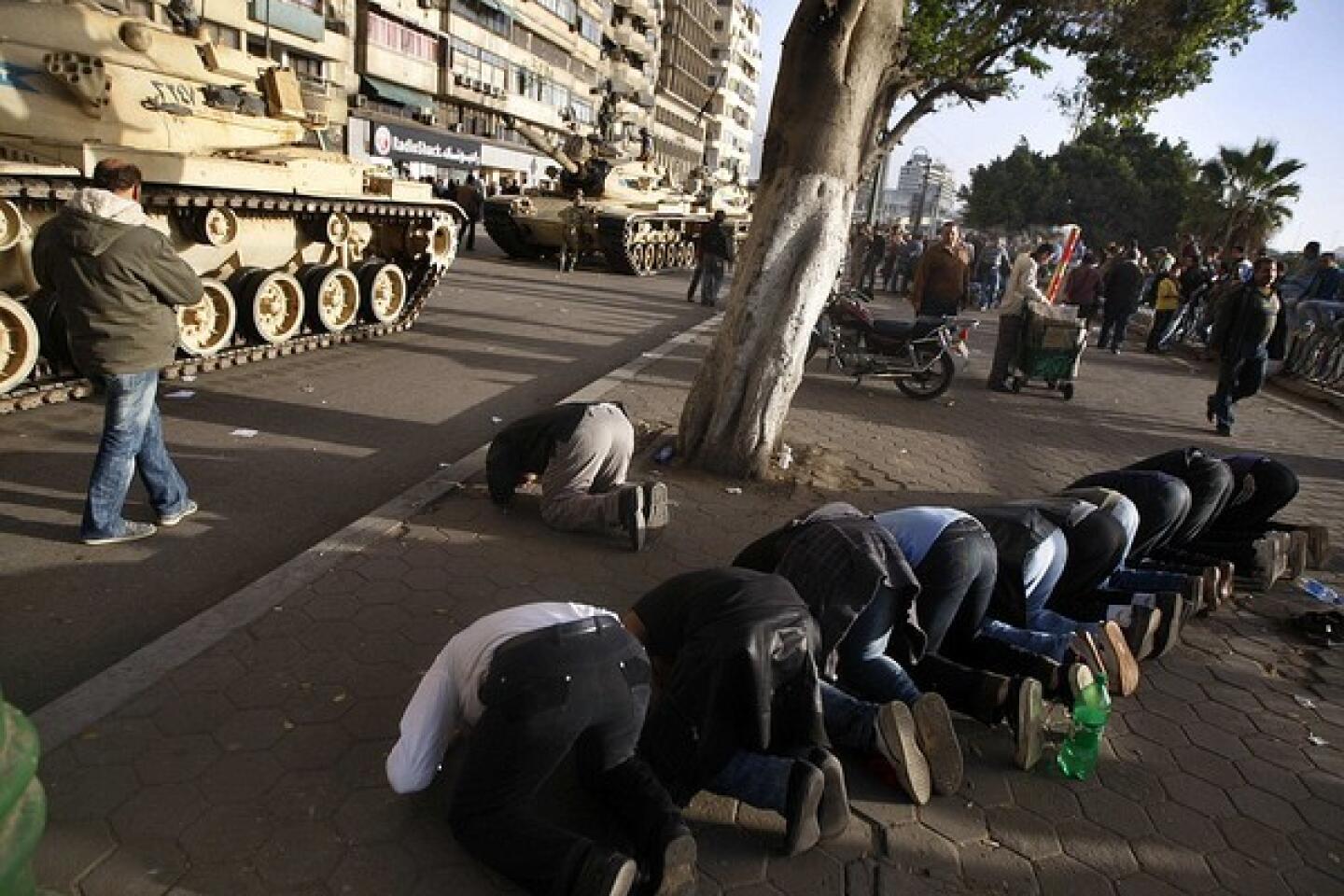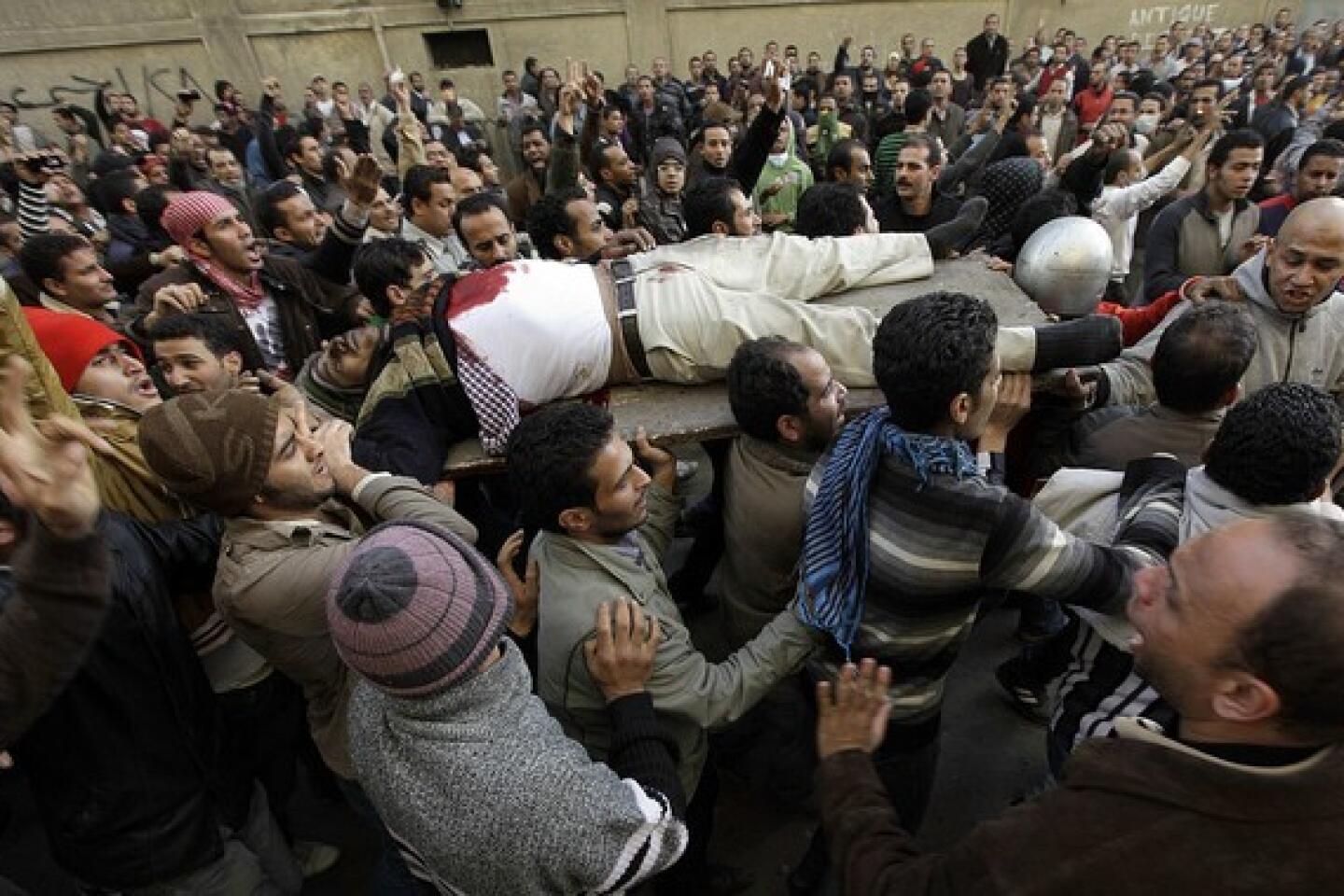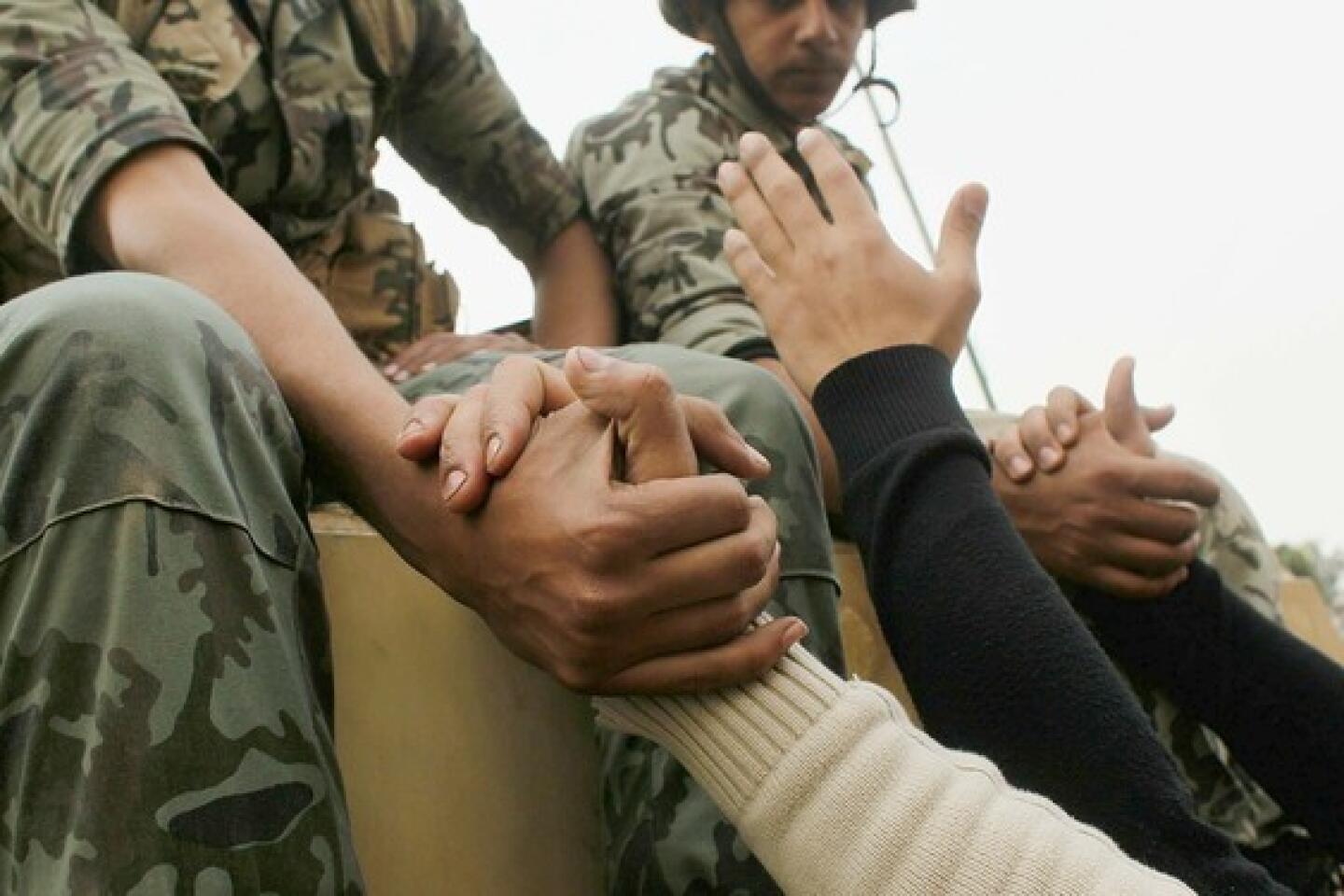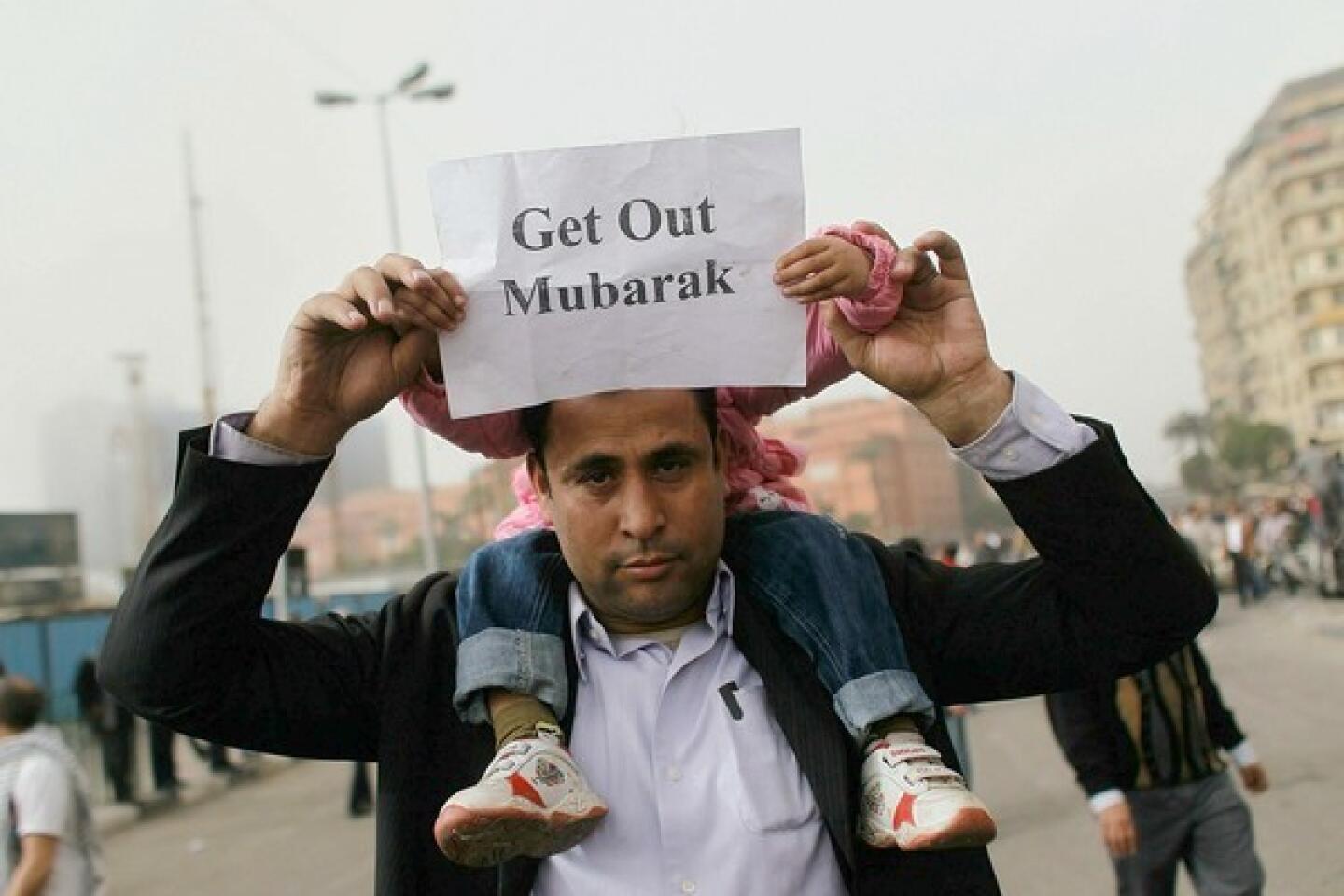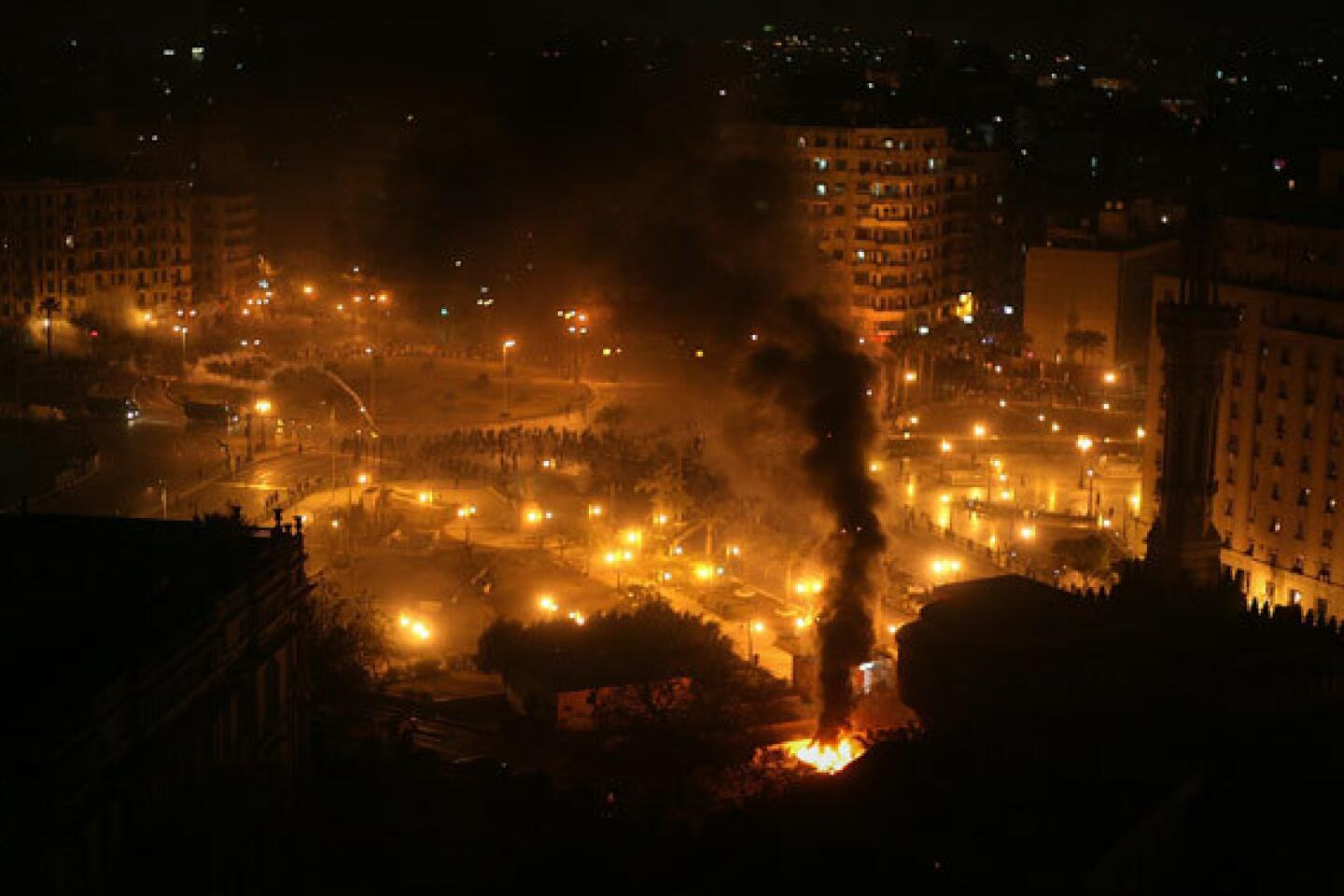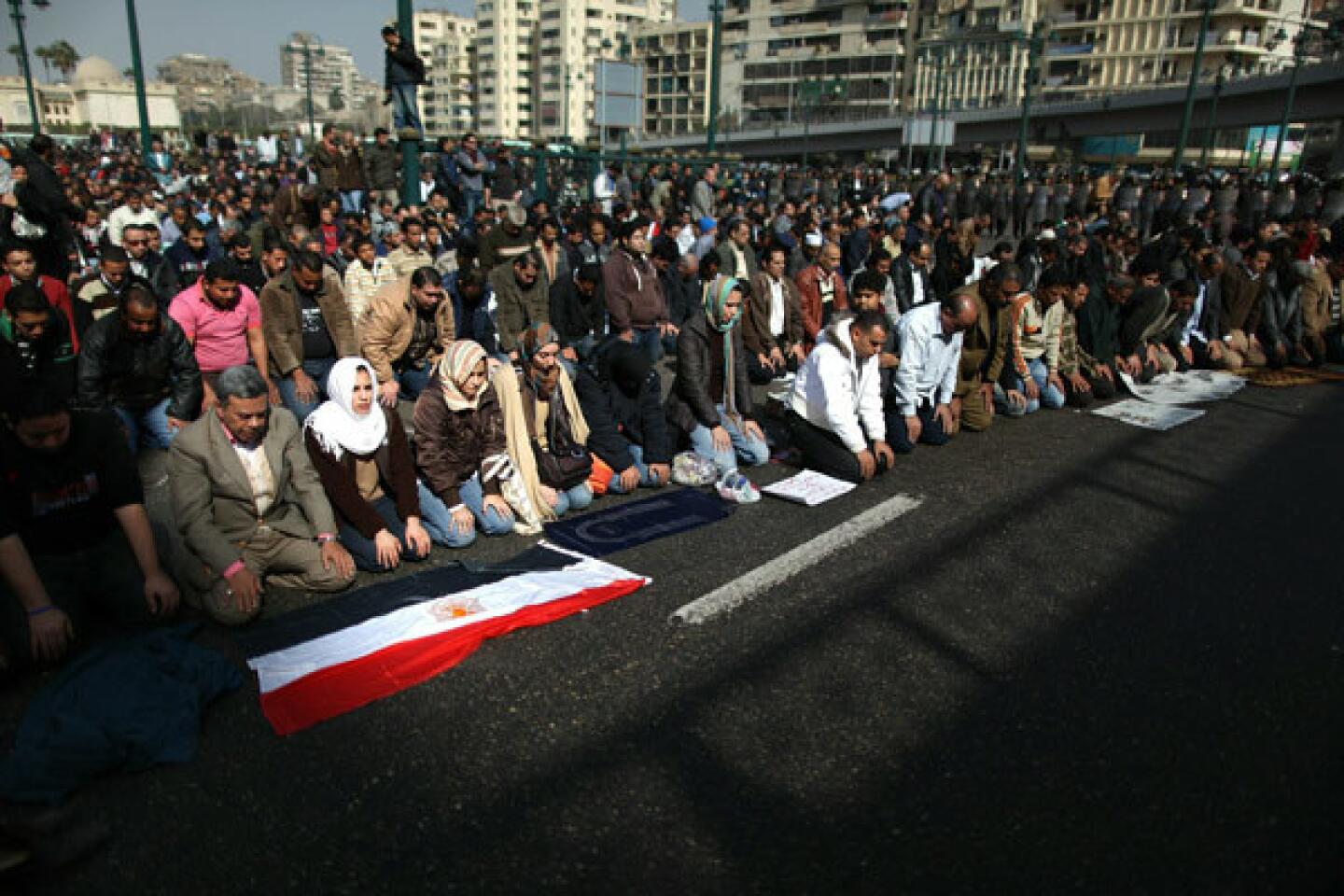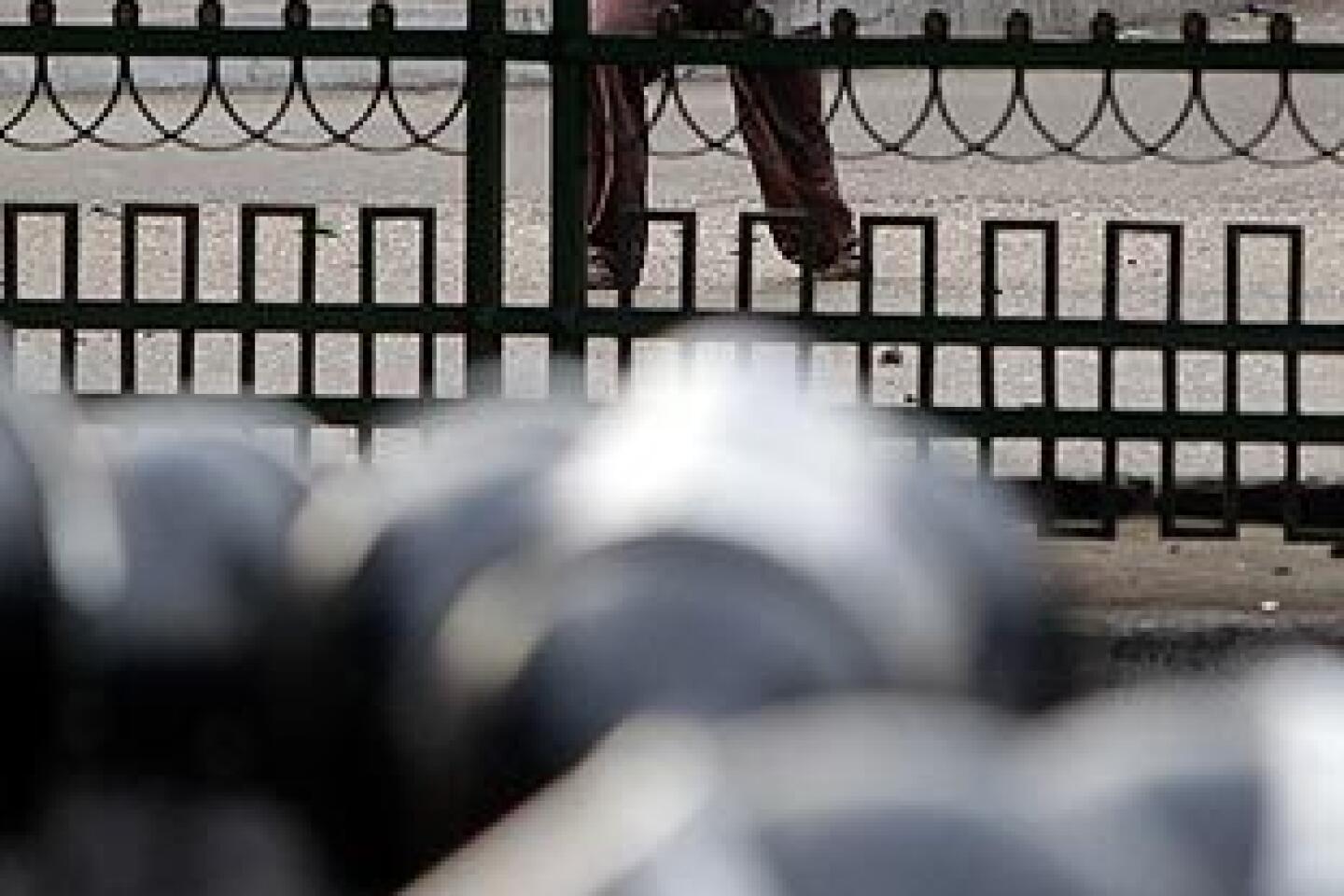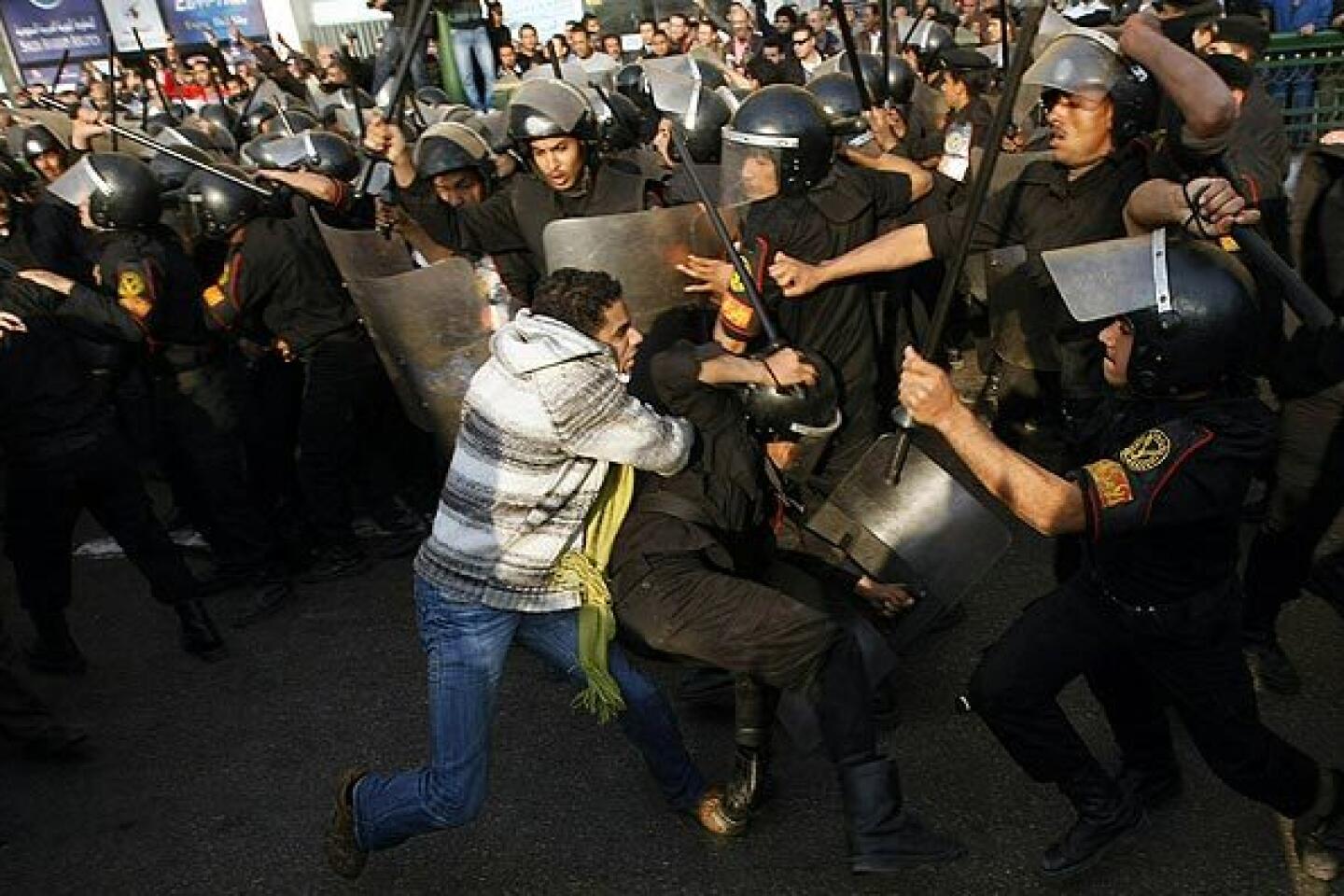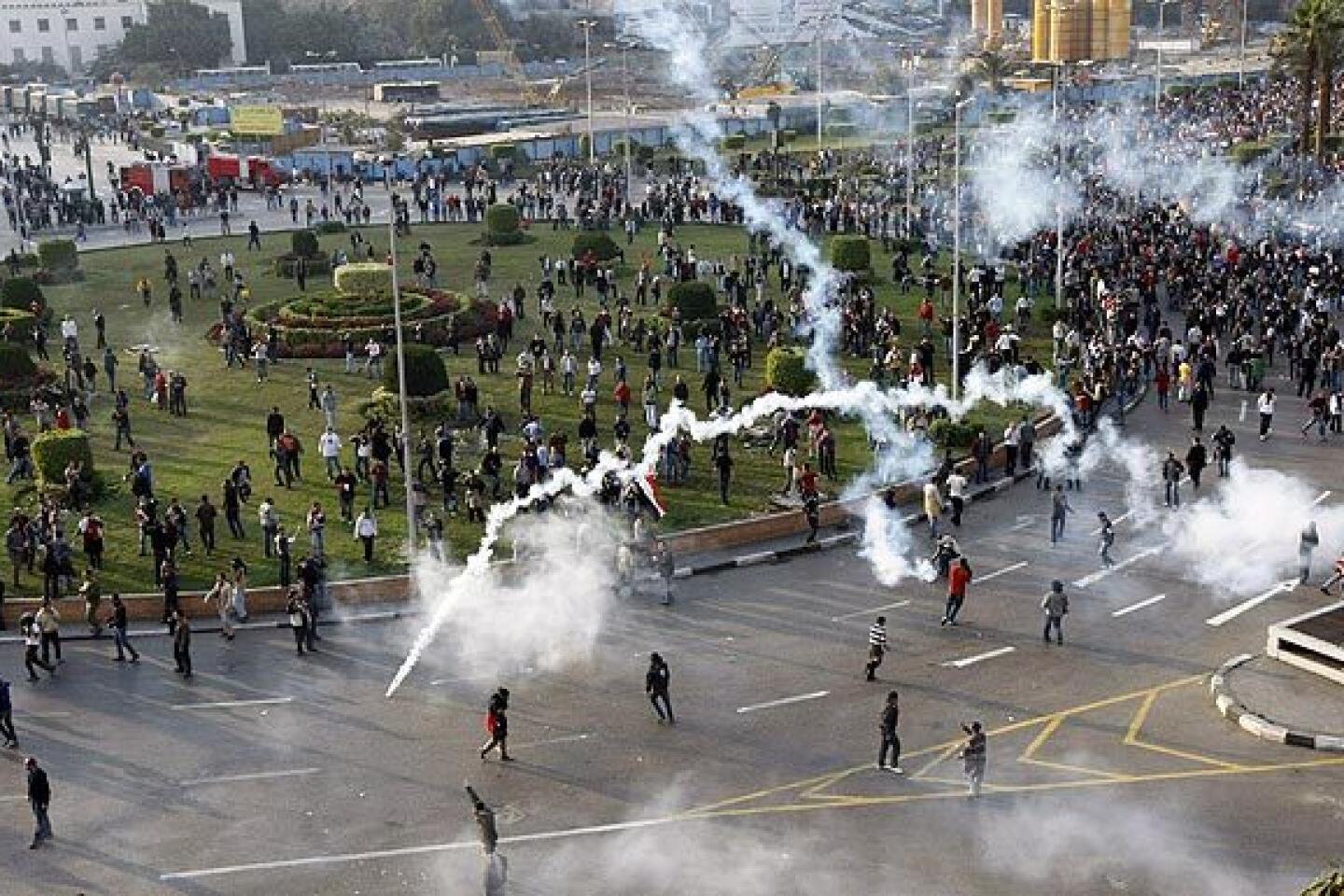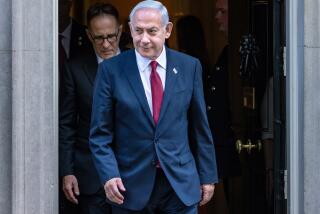Egypt security forces crack down on scattered protests
Reporting from Washington and Cairo — The Obama administration urged key Mideast ally Egypt to heed calls for political reform even as security forces tightened their grip on pockets of rebellion in the capital that persisted a day after unprecedented nationwide protests.
The Egyptian Interior Ministry — stunned by the size and passion of the demonstrations against the 3-decade-old government — announced Wednesday that it would not tolerate further protests. Activists in parts of Cairo defied the ministry’s threats of “immediate arrest.” But the crackdown appeared to keep thousands of demonstrators, angered by unemployment and repression, from venturing back into the streets.
The stiff challenge to the government of President Hosni Mubarak, a longtime American ally, has left the White House in a delicate position, less than two weeks after another longtime autocratic North African ally, President Zine el Abidine ben Ali of Tunisia, was toppled in a popular uprising.
Secretary of State Hillary Rodham Clinton, who on Tuesday had urged restraint by “all parties” in Egypt, sought Wednesday to walk a fine line between sympathy for the political opposition and longtime support for Mubarak.
Speaking to reporters at the State Department, Clinton urged the Egyptian government to allow a greater voice for the opposition and to not respond harshly to the street protesters, who have said they have been inspired by the Tunisian revolt.
“We are particularly hopeful that the Egyptian government will take this opportunity to implement political, economic and social reforms that will answer the legitimate interests of the Egyptian people,” Clinton said, urging Egyptian authorities not to halt the protests nor to shut down social media networks the protesters are using.
The April 6 youth movement, which hopes to force Mubarak from office, said Wednesday that it was not deterred by a police presence that grew throughout the day. The group, which has organized protests through Facebook, said it was planning a large demonstration after Friday prayers, a provocation that would probably trigger unrest not seen since Egypt’s deadly bread riots of 1977.
The day was marked by police firing live ammunition into the air to chase protesters away as they attempted to gather. More than 2,000 demonstrators arrived at the courthouse near the National Museum. Minutes later, police closed in, scattering the dissidents, some of whom threw rocks and set tires on fire as they fled. Protesters were often out of communication with one another, as Twitter and other social networking accounts were blocked.
Authorities said a protester and a policeman were killed when security forces and demonstrators threw stones at one another, according to Arab news reports quoting unnamed security sources. That brought to six the number of people killed in two days of unrest. A witness in the city of Suez, where three protesters have died, said a government building was set on fire Wednesday night.
At least 500 people reportedly have been arrested this week, scores of them before dawn on Wednesday, when police using water cannons and tear gas dispersed a crowd of several thousand hunkered in Cairo’s Tahrir Square.
“The harshness and brutality of the police has scared a lot of people,” Fathi Abdul Latif, a member of the opposition National Front for Change, said as police swung bamboo canes and hauled off five protesters near the Journalists’ Union. “Activists and organizers are regrouping. A revolution needs time. What happened on Tuesday has given us confidence.”
Like their counterparts in Tunisia, many Egyptians are angry over three decades of a government that offers little hope to the young, who blame the ruling party for corruption, unemployment and stagnation. It is the effects of these failings in ordinary lives, not ideology or the urgings of political opposition groups, that Egyptians say are driving their resentment against a president many regard as a dictator.
The 82-year-old Mubarak, who may seek reelection this year, has watched his popularity steadily tumble as Egyptians, who rarely ridiculed him in the past, openly yell epithets against him. It is a turn of fate many find hard to comprehend, after years of mass arrests, especially against the officially banned Muslim Brotherhood, and the silencing of many political opponents.
“I’ve been a political analyst for 30 years, and I didn’t expect this,” said Diaa Rashwan. “This has opened a new political history in Egypt. It’s the first time people are deciding for themselves to protest and demand. Everybody had expected the lower classes to one day revolt, but these protesters are the educated, the middle class and even women.”
Just as it remains to be seen whether the protests will swell or wither, it is also unclear what effect the Obama administration’s calls for reform may have on Mubarak, the protesters or the larger Middle East region. The White House is in a difficult position because it relies heavily on the Mubarak government but does not want to lose influence if anti-government groups take control.
Egypt is the fourth-largest recipient of U.S. aid in the greater Middle East region, receiving $1.3 billion in military support annually. Its help has been important on Israeli-Palestinian issues, on Iran, and in fighting terrorism. If the government were to fall — a development still considered unlikely — the opposition could include deeply anti-American groups such as the Muslim Brotherhood.
In her remarks, Clinton sought to emphasize the long-standing American support for democratic aspirations in Egypt.
U.S. governments, she said, “have consistently raised with the Egyptian government, over many years, as well as other governments in the region, the need for reform and greater openness and participation in order to provide a better life, a better future, for the people.”
At the same time, a White House spokesman emphasized that the administration was not now siding against the Egyptian government.
“This is not a choice between Mubarak and the Egyptian people,” said spokesman Tommy Vietor. “Egypt is a close partner of the United States, and we have consistently advocated for greater political, economic and social reform with President Mubarak and the Egyptian government.”
The Obama administration came to office playing down the demands for reform advocated aggressively by President George W. Bush, aware that his advocacy had been unpopular in the region.
In recent months, the administration has stepped up its calls for reform, in part because of an awareness of growing public anger in the Arab world over economic issues and corruption. Two weeks ago, Clinton, at a conference in Doha, Qatar, lambasted Arab leaders for failing to address the needs for reform. Sounding much like Bush, she described the need for political reform as an existential threat to Arab governments.
Her comments came even as the protests that eventually toppled the Tunisian government were beginning to intensify.
A senior administration official said that the administration does not intend to go as far as the Bush administration, but was seeking a “sweet spot” in calibrating its messages. An Egyptian official in Washington said that a call from President Obama to Mubarak last week did not touch on the issue of political reform. The call, he said, was primarily to offer condolences to Mubarak for the 21 deaths from the bombing of a Christian church in Alexandria in the first hour of New Year’s Day.
In his State of the Union speech on Tuesday, Obama dwelt little on foreign policy, but did indicate that the United States supports reform in Egypt.
“Tonight, let us be clear: The United States of America stands with the people of Tunisia, and supports the democratic aspirations of all people,” Obama said.
Times staff writer Richter reported from Washington and Fleishman from Cairo. Amro Hassan of The Times’ Cairo Bureau contributed to this report.
More to Read
Sign up for Essential California
The most important California stories and recommendations in your inbox every morning.
You may occasionally receive promotional content from the Los Angeles Times.
